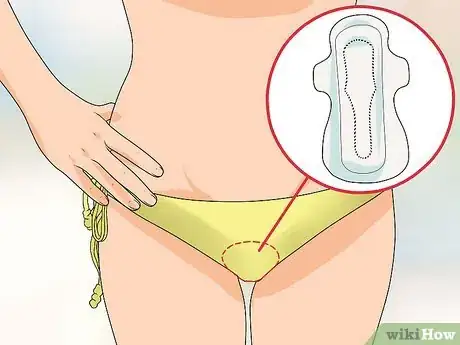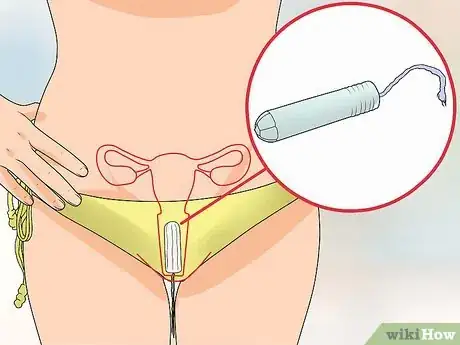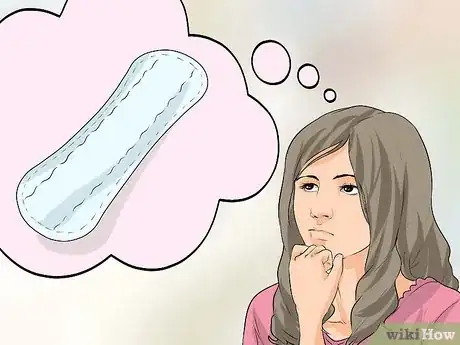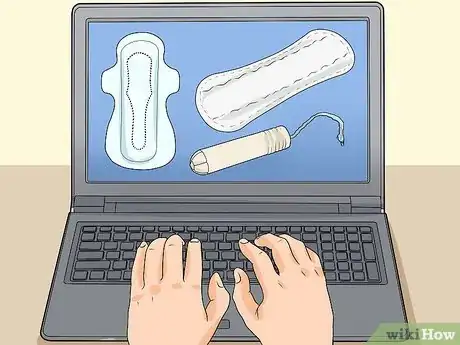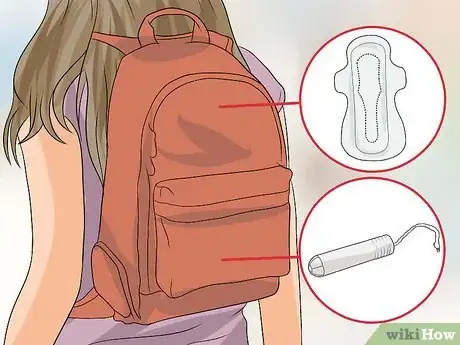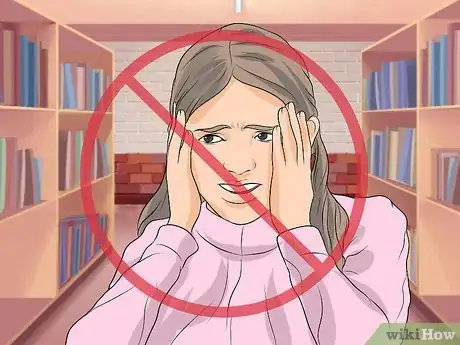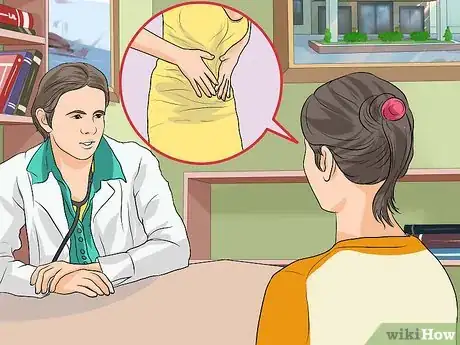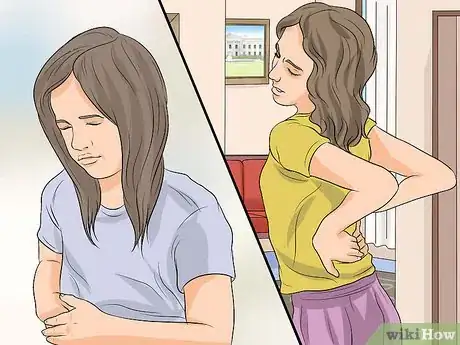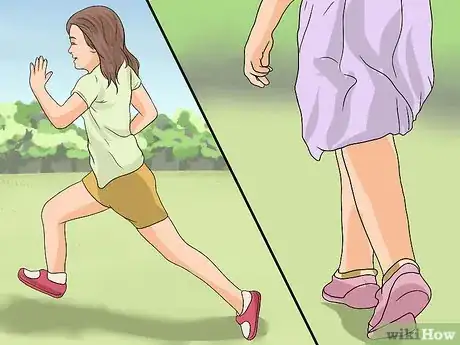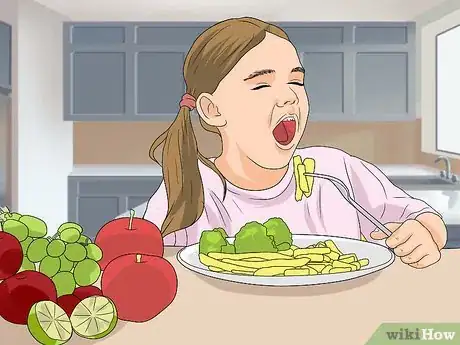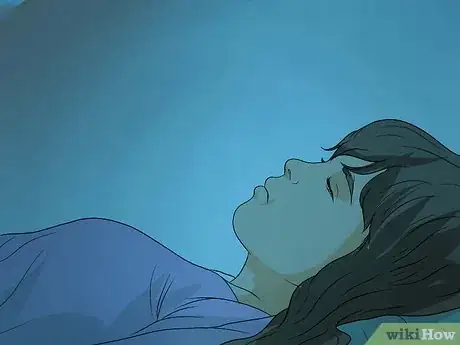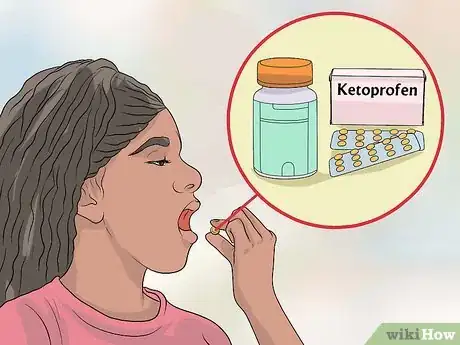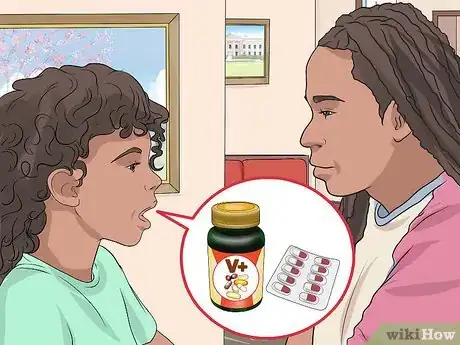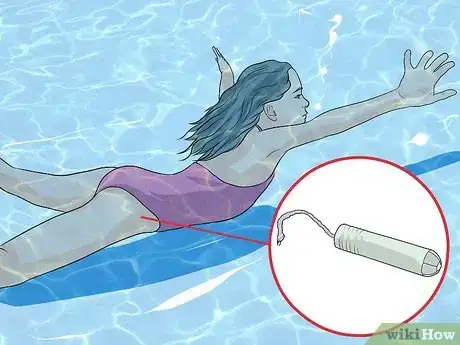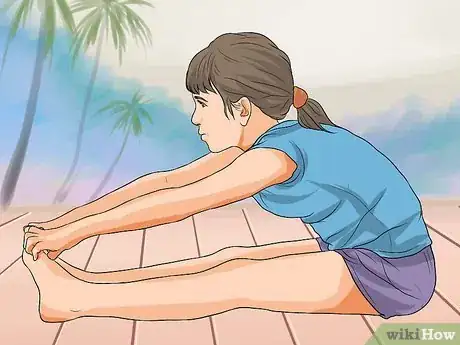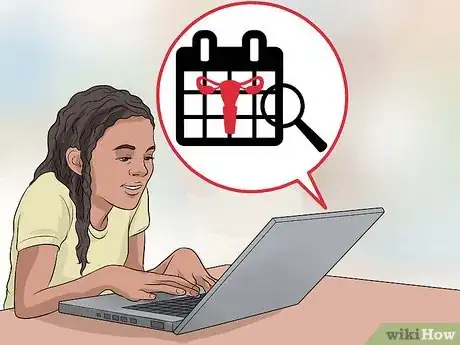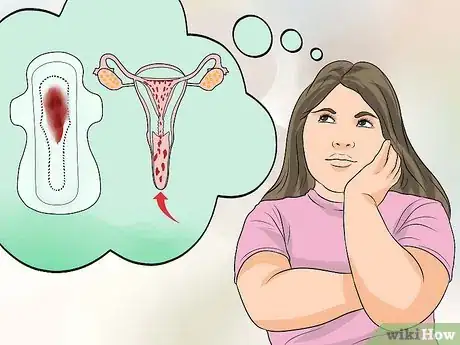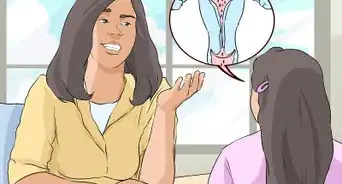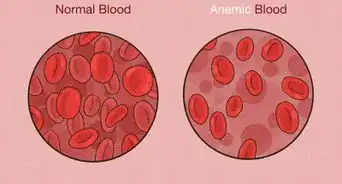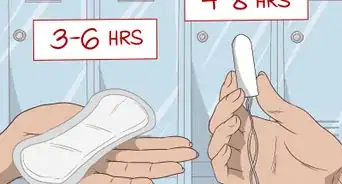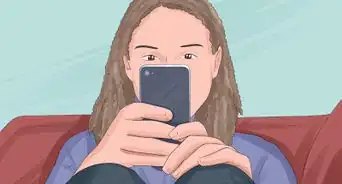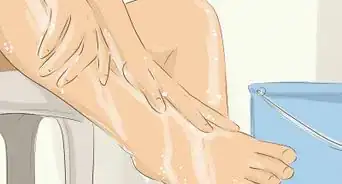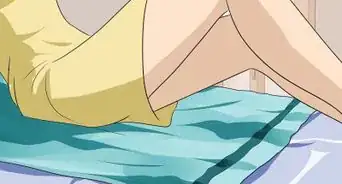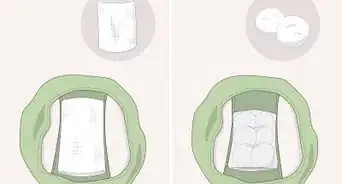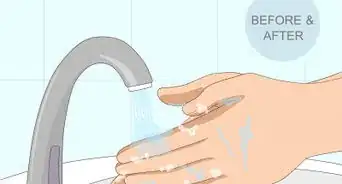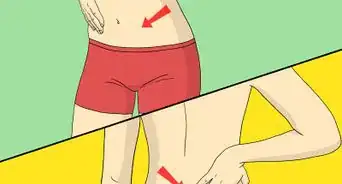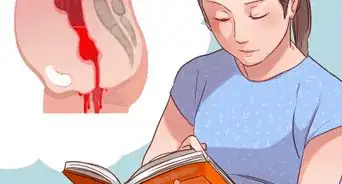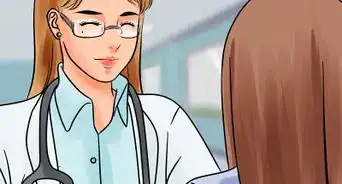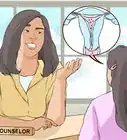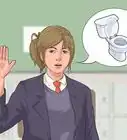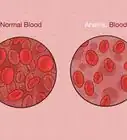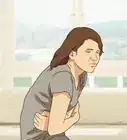This article was co-authored by Alicia Oglesby. Alicia Oglesby is a Professional School Counselor and the Director of School and College Counseling at Bishop McNamara High School outside of Washington DC. With over ten years of experience in counseling, Alicia specializes in academic advising, social-emotional skills, and career counseling. Alicia holds a BS in Psychology from Howard University and a Master’s in Clinical Counseling and Applied Psychology from Chestnut Hill College. She also studied Race and Mental Health at Virginia Tech. Alicia holds Professional School Counseling Certifications in both Washington DC and Pennsylvania. She has created a college counseling program in its entirety and developed five programs focused on application workshops, parent information workshops, essay writing collaborative, peer-reviewed application activities, and financial aid literacy events.
There are 10 references cited in this article, which can be found at the bottom of the page.
wikiHow marks an article as reader-approved once it receives enough positive feedback. In this case, 100% of readers who voted found the article helpful, earning it our reader-approved status.
This article has been viewed 61,194 times.
Puberty and your first period can start when you’re as young as 8 years old, and you might start yours when you're in elementary school. You might be the first in your group of friends to experience this. But don't worry. No matter what you may be going through, there are two important things to remember: (1) there are things you can do to make your life easier, and (2) don’t be embarrassed to ask for help.
Steps
Getting Your Period
-
1Use a pad or sanitary napkin. Pads or sanitary napkins are thin, cushiony pieces of fabric that suck in and absorb the liquid that comes out of your body during your period. Pads can hold a LOT of liquid! They also have two sides - a sticky side that attaches to the inside of your underwear, and a non-sticky side that absorbs the liquid. Some pads also have “wings” that can fold around the outside of your underwear to help keep the pad from moving when you walk. These “wings” can also help stop leaks.f[1]
- Pads should never be flushed down the toilet. They should be wrapped in toilet paper and put in the garbage. Most bathroom stalls have special bins just for pads and tampons. If not, wrap tissue paper around it and throw it away.
- You should change your pad at least every 3-4 hours. If you’re having a “light" flow, you can probably go a little longer, but if you’re having a “heavy" flow, you’ll want to change your pad more often. (Like 1-2 hours)
-
2Try tampons. Tampons can be used instead of pads. Tampons have two parts - the actual tampon itself (which almost looks like a long, thick cotton ball), and the applicator. Applicators can be made of plastic or paper. Tampons are worn inside your vagina and capture the liquid before it leaves your body. Because it’s worn inside your vagina, it needs to be changed at least every 4-6 hours. Tampons should not be worn overnight.
- Some tampons are designed to be flushed down a toilet, but some need to be disposed of in a garbage. Tampon applicators must never be flushed down a toilet.[2]
- There is something called Toxic Shock Syndrome (TSS) that can happen if you leave a tampon inside your body for too long. It can make you feel quite sick. This is why you should not wear a tampon longer than 4-6 hours, and why you should never wear one overnight.
Advertisement -
3Decide if you want to use pantyliners. Pantyliners are smaller, thinner pads. They are also sticky on one side and attach to the inside of your underwear. They are normally worn in-between your periods to help protect your underwear something called "vaginal discharge." Vaginal discharge is perfectly normal, and is normally white, yellow or clear in colour. Discharge varies from person to person. You can always try out pantyliners one month to see if you like them.
Dealing With the Unexpected
-
1Be informed. There is a never-ending supply of great stuff about periods online. Take the time to read some of this material. Plus, pay attention in health class! Don’t be embarrassed to ask your parents, doctor or teacher questions about how your period works. There are no stupid questions. The more stuff you learn, the better. All this information will help you figure out what’s happening to you, and realize that it’s all perfectly normal.
- The Office of Women’s Health in the U.S. Department of Health and Human Services has created an awesome guide just for teens. You can download a PDF copy of the guide at their website - http://www.girlshealth.gov/about/images/teen_survival_guide.pdf.
- The website kidshealth.org has a large section about female puberty and periods - http://kidshealth.org/teen/sexual_health/girls/menstruation.html.
-
2Keep period supplies with you (Or make a period kit).[3] At the very least, it’s always a good idea to keep a few pads and/or tampons with you at all times. You can carry them in a hidden pocket of your backpack or bag, or even put them in your locker (maybe inside a pencil case). You might also want to keep an extra pair of underwear or pants at school or in your bag for emergencies in case your pad or tampon leaks. It might seem weird to do this, but you’ll be SO grateful if you ever need them.[4]
-
3Don't panic if your period takes you by surprise. Stay calm and think about what you need to do. If your period started and you don't have a pad, or if your pad or tampon leaked, you can talk to a trusted friend, female teacher, counsellor or nurse to ask for supplies. Schools usually have a supply of pads and tampons they can give you. You can also ask to call your parents so you can go home if you'd rather do that.[5]
- If your period started when you weren’t expecting it to, or you’ve run out of pads or tampons, you can always use toilet paper. (Fold a long piece of toilet paper into a rectangular shape, then use another piece of paper to secure it around the sides.) It will work for a short time until you can get home.
- If your pad or tampon leaks and leaves a spot on your pants, try pulling your shirt down over your bum. Or tie a shirt or jacket around your waist.
- Don’t be embarrassed about asking for help. Adults will understand and will not make fun of you. It’s probably even happened to them before! [6]
-
4Know when to go to your doctor. When you get your period for the first time, you don't need to go to your doctor. However, if any of the following things happen, ask your parents to take you to the doctor. It might not be anything bad, but it’s always a good idea to check, just to be sure.[7]
- You feel a lot of pain in your stomach or have really, really bad cramps.
- The vaginal discharge you get between periods is yellow, grey or green and smells really bad. And your vagina feels itchy.
- Your period lasts longer than 7 days.
- You get your periods less than 21 days apart, or more than 45 days apart. (Although when you're younger it's more common to have irregular cycle patterns.)
- You have any bleeding between your periods.
Dealing With PMS
-
1Prepare for the possibility of PMS. PMS, or premenstrual syndrome, is something you might get before and/or during your period. PMS can include things like cramps, pain in your back, sadness, mood changes, pimples, bloating, headaches, and even tenderness in your breasts. It isn’t fun, but it does go away. PMS symptoms vary from person to person. Some people will get all the symptoms every month, and some people will hardly ever get symptoms.[8]
-
2Exercise regularly. Exercising can actually help your cramps go away, or at least not be so bad. Exercise can include playing sports, going for a bike ride, jumping on a trampoline, going skateboarding, taking a hike … whatever you find fun.[9]
-
3Eat properly. Make sure you’re eating a lot of fruits and vegetables. Kids between the ages of 9 and 13 should eat at least 6 servings of fruit and vegetables every day.[10] Try not to eat a lot of salty and sweet foods, or drinks like cola.
-
4Get enough sleep every night. You should get around 9 hours of sleep every night. And you’ll likely find you’re more tired during your period, so go to bed earlier if you have to.[11]
-
5Take pain medicine. “Over-the-counter” medications are pills that your parents can buy at a drug store without going to the doctor. Medicines like ibuprofen, ketoprofen, naproxen, and aspirin are a few that can help, but you should never take them without first asking your parents. Your parents will help you figure out how much to take, and when.[12]
- Sometimes PMS symptoms are bad enough that the medicine you buy at the drug store simply doesn't work. If you’ve tried everything else and nothing is working, ask your parents to take you to the doctor to talk about prescription medicines.[13]
-
6Ask your parents or doctor if you should take vitamins. Some vitamins and minerals can help PMS symptoms - folic acid, calcium with vitamin D, magnesium, vitamin B6, and vitamin E. All of these vitamins and minerals can be found at any drug or grocery store, but the amounts you take will depend on your age. Before taking vitamin and minerals, speak to your doctor and ask them how much you should take.[14]
Busting Period Myths
-
1Go swimming. Swimming while you have your period is perfectly okay. However, since pads absorb liquid, they will absorb water while you’re swimming and become quite useless. When swimming you may prefer to wear a tampon. If you don’t want to wear a tampon, you can try to wear a pad or pantyliner, but you should change it immediately when you get out of the water.[15]
-
2Get exercise. Exercise is a great way to help your PMS symptoms like cramps and muscle aches. You can still do any activity when you have your period that you could do when you didn’t have it. You don’t have to change your day-to-day life when you get your period.[16]
-
3Try tracking your period. Tracking your period can help you figure out when your period should start so you'll know when to have supplies on hand. You can find some period trackers online - just search for “period tracker” or “period calculator.” Download period tracking apps such as Clue, to mark down your dates of the period.[17] Keep in mind that everyone's body is different, and there's no sure way to predict exactly when your period will come.
-
4Understand what makes up your period. Discharge during your period isn’t 100% blood. Periods usually start out light and the liquid looks brownish-red. After a few days your period “flow” will get heavier, and it’ll turn a darker shade of red. After that, it slows down and becomes lighter again until it finally stops. While the liquid can look like pure blood, don’t worry, it isn’t. The liquid is actually the lining of your uterus (the place where a baby would grow) being removed from your body. It’s mainly tissue and fluids, with a tiny bit of blood. It’s that tiny bit of blood that stains all the liquid a red colour.
Expert Q&A
-
QuestionShould I tell my friends that I started getting my period?
 Alicia OglesbyAlicia Oglesby is a Professional School Counselor and the Director of School and College Counseling at Bishop McNamara High School outside of Washington DC. With over ten years of experience in counseling, Alicia specializes in academic advising, social-emotional skills, and career counseling. Alicia holds a BS in Psychology from Howard University and a Master’s in Clinical Counseling and Applied Psychology from Chestnut Hill College. She also studied Race and Mental Health at Virginia Tech. Alicia holds Professional School Counseling Certifications in both Washington DC and Pennsylvania. She has created a college counseling program in its entirety and developed five programs focused on application workshops, parent information workshops, essay writing collaborative, peer-reviewed application activities, and financial aid literacy events.
Alicia OglesbyAlicia Oglesby is a Professional School Counselor and the Director of School and College Counseling at Bishop McNamara High School outside of Washington DC. With over ten years of experience in counseling, Alicia specializes in academic advising, social-emotional skills, and career counseling. Alicia holds a BS in Psychology from Howard University and a Master’s in Clinical Counseling and Applied Psychology from Chestnut Hill College. She also studied Race and Mental Health at Virginia Tech. Alicia holds Professional School Counseling Certifications in both Washington DC and Pennsylvania. She has created a college counseling program in its entirety and developed five programs focused on application workshops, parent information workshops, essay writing collaborative, peer-reviewed application activities, and financial aid literacy events.
Professional School Counselor Some students like to make a big deal out of it by having a pizza party or by going for ice cream with friends and sharing the news. Be prepared for questions from friends. It may be a good idea to do this when you are feeling open to those personal questions. If you choose to keep it low-key, asking your friends to hang out with you after school or on a group chat over the weekend may be a great option. Let them know you are willing to answer questions they might have. Whatever you decide, let the experience bring your friendship closer together.
Some students like to make a big deal out of it by having a pizza party or by going for ice cream with friends and sharing the news. Be prepared for questions from friends. It may be a good idea to do this when you are feeling open to those personal questions. If you choose to keep it low-key, asking your friends to hang out with you after school or on a group chat over the weekend may be a great option. Let them know you are willing to answer questions they might have. Whatever you decide, let the experience bring your friendship closer together.
References
- ↑ http://www.girlshealth.gov/about/images/teen_survival_guide.pdf
- ↑ http://www.girlshealth.gov/about/images/teen_survival_guide.pdf
- ↑ Alicia Oglesby. Professional School Counselor. Expert Interview. 13 April 2021.
- ↑ http://pbskids.org/itsmylife/body/puberty/article12.html
- ↑ http://kidshealth.org/kid/grow/periods/period_school.html#
- ↑ http://kidshealth.org/kid/grow/girlstuff/five_period.html?tracking=K_RelatedArticle#
- ↑ http://kidshealth.org/teen/sexual_health/girls/irregular_periods.html?tracking=T_RelatedArticle#
- ↑ http://www.womenshealth.gov/publications/our-publications/fact-sheet/premenstrual-syndrome.html
- ↑ http://www.womenshealth.gov/publications/our-publications/fact-sheet/premenstrual-syndrome.html
- ↑ http://www.hc-sc.gc.ca/fn-an/food-guide-aliment/basics-base/quantit-eng.php
- ↑ http://kidshealth.org/parent/general/sleep/sleep.html#
- ↑ http://www.womenshealth.gov/publications/our-publications/fact-sheet/premenstrual-syndrome.html
- ↑ http://www.womenshealth.gov/publications/our-publications/fact-sheet/premenstrual-syndrome.html
- ↑ http://www.womenshealth.gov/publications/our-publications/fact-sheet/premenstrual-syndrome.html
- ↑ http://always.com/en-us/tips-and-advice/the-talk/8-period-myths-that-moms-can-bust
- ↑ http://always.com/en-us/tips-and-advice/the-talk/8-period-myths-that-moms-can-bust
- ↑ http://always.com/en-us/tips-and-advice/the-talk/8-period-myths-that-moms-can-bust
